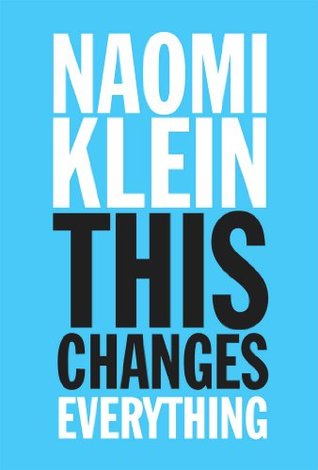More on this book
Community
Kindle Notes & Highlights
Yale’s Dan Kahan points out that while those who poll as highly “hierarchical” and “individualist” bridle at any mention of regulation, they tend to like big, centralized technologies that do not challenge their belief that humans can dominate nature.
What is most remarkable about these parallel processes—trade on the one hand, climate on the other—is the extent to which they functioned as two solitudes. Indeed, each seemed to actively pretend that the other did not exist, ignoring the most glaring questions about how one would impact the other. Like, for example: How would the vastly increased distances that basic goods would now travel—by carbon-spewing container ships and jumbo jets, as well as diesel trucks—impact the carbon emissions that the climate negotiations were aiming to reduce? How would the aggressive protections for
...more
Many degrowth and economic justice thinkers also call for the introduction of a basic annual income, a wage given to every person, regardless of income, as a recognition that the system cannot provide jobs for everyone and that it is counterproductive to force people to work in jobs that simply fuel consumption.
What stopped Obama from seizing his historical moment to stabilize the economy and the climate at the same time was not lack of resources, or a lack of power. He had plenty of both. What stopped him was the invisible confinement of a powerful ideology that had convinced him—as it has convinced virtually all of his political counterparts—that there is something wrong with telling large corporations how to run their businesses even when they are running them into the ground, and that there is something sinister, indeed vaguely communist, about having a plan to build the kind of economy we need,
...more
And of course the Heartland audience cheered earnestly for the intellectual breakthrough that is hydraulic fracturing (aka fracking) combined with horizontal drilling, the technology that has finally allowed the fossil fuel industry to screw us sideways.44
one of the greatest misconceptions in the climate debate is that our society is refusing to change, protecting a status quo called “business-as-usual.” The truth is that there is no business-as-usual. The energy sector is changing dramatically all the time—but the vast majority of those changes are taking us in precisely the wrong direction, toward energy sources with even higher planet-warming emissions than their conventional versions.
John Ashton, who served as special representative for climate change to three successive U.K. governments between 2006 and 2012, told me that he would often point out to his colleagues making energy policy that their approach to the development of fossil fuels contradicted the government’s claim to be “running a 2 degree climate policy.” But when he did, they “simply ignored my efforts and carried on as before—I might as well have been speaking in Attic Greek.” From this Ashton concluded, “In government it is usually easy to rectify a slight misalignment between two policies but near
...more


